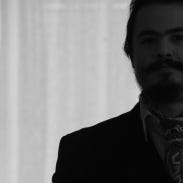This weekend, I’ve got a cultural observation to share from my most recent movie & TV essays: Storytelling depends on drama, drama depends on conflict, conflict depends on a sustained awareness of our difficulties & their potentially intractable character. This is why Republicans fail to deal with culture—they’re the party of an increasingly implausible…
Keep reading with a 7-day free trial
Subscribe to PostModernConservative to keep reading this post and get 7 days of free access to the full post archives.



